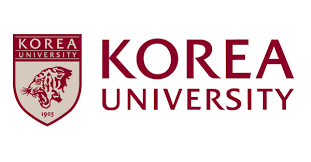Korea University: Video-makers from 18 countries share stories in Korean language
The festival, held in commemoration of Hangul Day, presented meaningful and heartwarming Korean-language videos by international creators
Sponsored by the Ministry of Culture, Sports and Tourism and King Sejong Institute, and organized by the Korea University Korean Language Center, the Korean UCC Festival was streamed live on YouTube at 3 p.m. on October 7.
The objective of the festival was to encourage non-Korean to ponder the meaning of the global community and share their daily experiences in Korea during the recent “endemic era” under the themes of “A Harmonious World” and “Enjoy, Korea!”
The festival attracted 55 teams from 18 countries, and seven submissions made it to the final round.
The grand prize was awarded to Masafumi Tada’s “My Half.” In the video, the Japanese protagonist is feeling skeptical about his experience of studying in Korea in the past six months, but realizes how precious the next six months will be when he meets another student who is filled with expectation. Many international students can easily relate to the story.
The top excellence award went to Yuliia Shabala’s “Flower Hearts Can Bloom in Difficult Times” and Yuria Koike’s “Because I’m Japanese.” Yuliia Shabala’s “Flower Hearts Can Bloom in Difficult Times” reminds us of the importance of pursuing happiness even in the most difficult of times. Yuria Koike’s “Because I’m Japanese” adopts a critical viewpoint towards the overemphasis on nationality, expressing the need to consider personal identity.
The winning works of the excellence award were Aiday By’s “Living in Harmony,” Tran Thi Chi’s “We Can Update,” Ksenia Panidi’s “Impossible is Possible,” and Aydemir Ummugulsun’s “Poetry and Beauty, Romance, Love, and Sea.” The best acting award went to Masafumi Tada’s “My Half” and Yuria Koike’s “Because I’m Japanese.”
Yupum Kim, the director of the Foreign Language Center, said, “The significance of this event lies in using Korean language as a medium for people of different cultures to share their thoughts and emotions. I hope this festival will move the hearts of those in love with Korea and Korean culture, helping them to return to life before COVID-19.”
Jihoon Park, a panel member and a professor of the School of Media & Communication, said, “The main focus last year was the despair felt in the face of COVID-19. This year, the submissions look at the sense of loneliness and social prejudices against non-Koreans in Korea. I appreciate the participants’ candid criticism of Korean society.”

